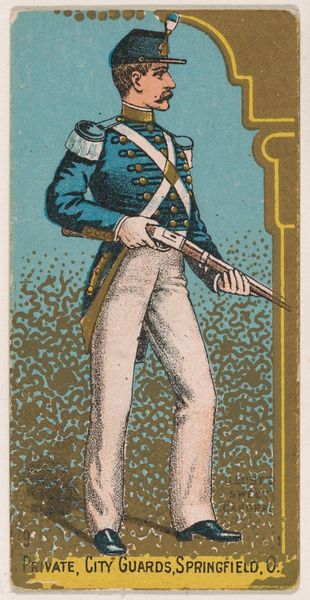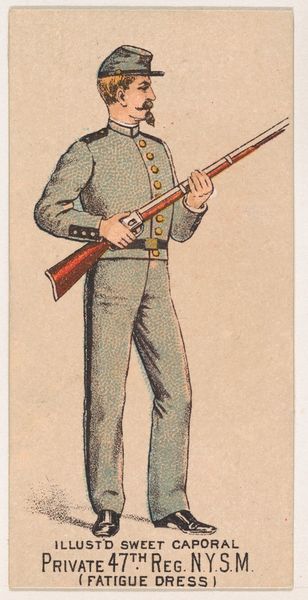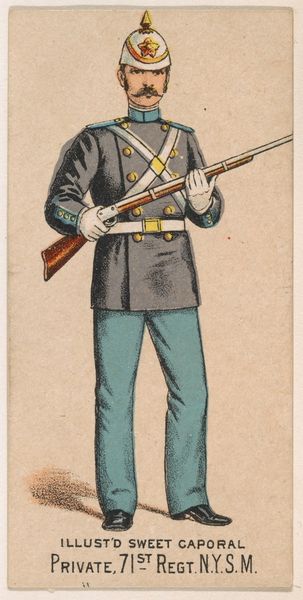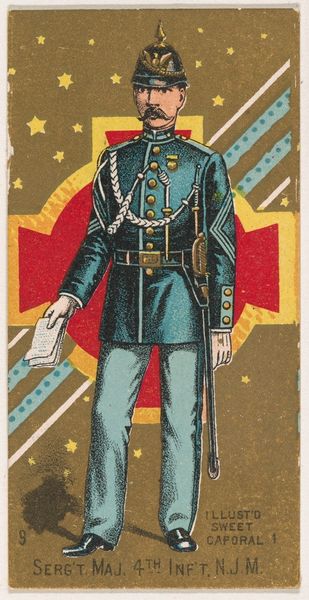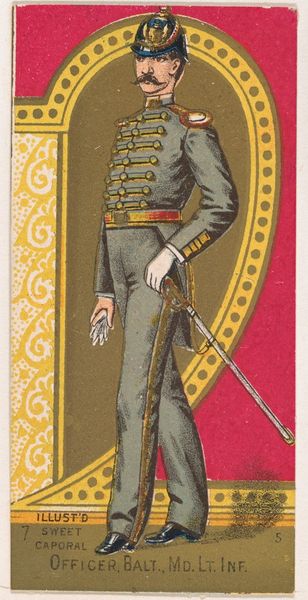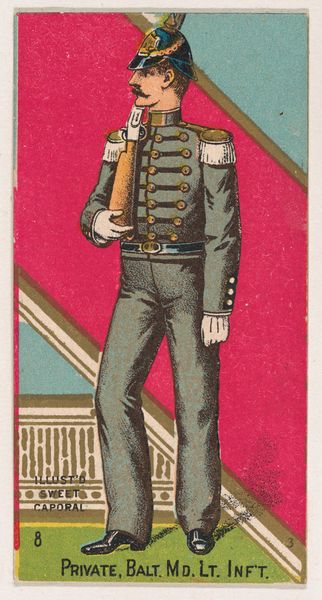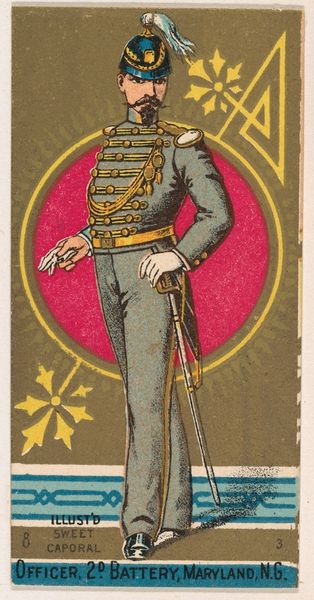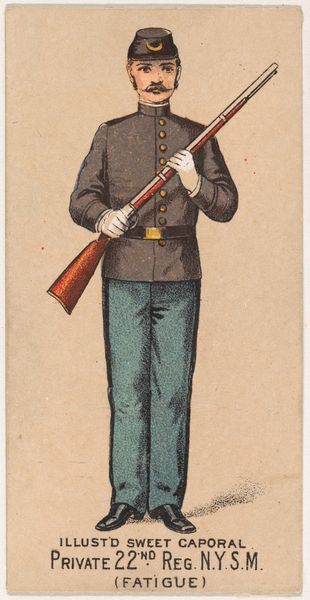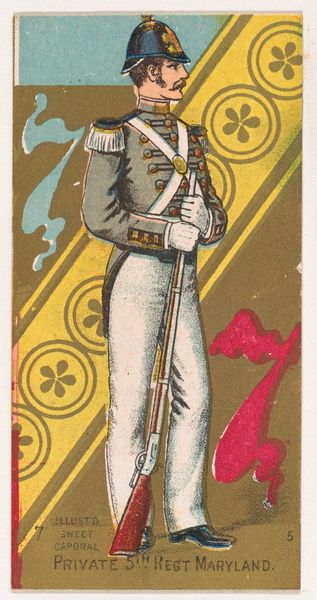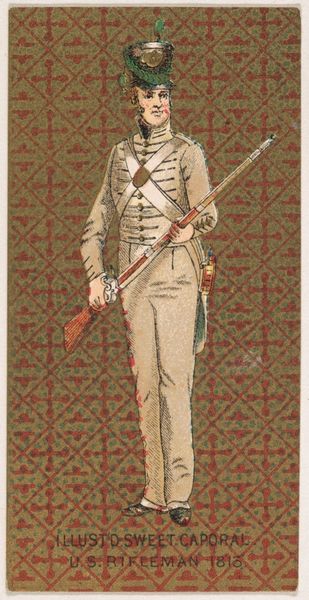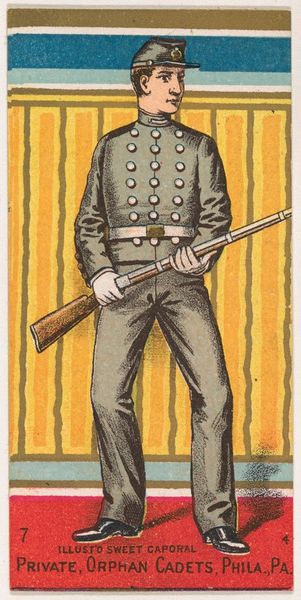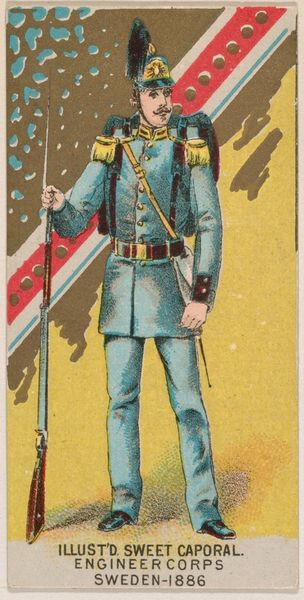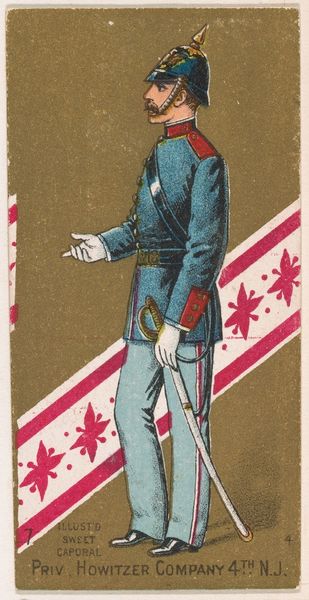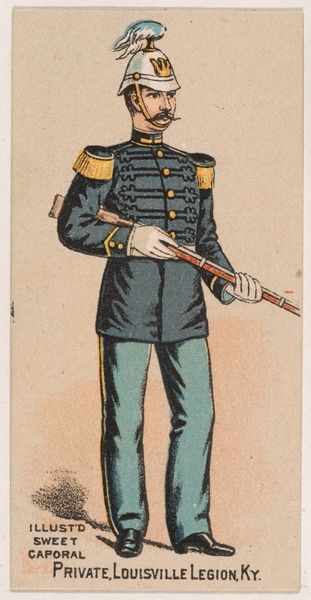
Private, 1st Regiment, Illinois, National Guard, from the Military Series (N224) issued by Kinney Tobacco Company to promote Sweet Caporal Cigarettes 1888
0:00
0:00
drawing, print
#
portrait
#
drawing
# print
#
caricature
#
caricature
#
soldier
#
academic-art
Dimensions: Sheet: 2 3/4 × 1 1/2 in. (7 × 3.8 cm)
Copyright: Public Domain
Editor: This lithograph, "Private, 1st Regiment, Illinois, National Guard," comes from an 1888 series of promotional trading cards for Sweet Caporal Cigarettes by the Kinney Tobacco Company. The illustration is quite charming, almost doll-like, with that elaborate uniform. I wonder, though, what might it say about the role of military imagery in shaping public perceptions at the time? Curator: Exactly! These weren't high art meant for museums. They were ubiquitous images circulated as part of a larger marketing machine. Consider the implications: how did such everyday imagery normalize military service and even romanticize the idea of being a soldier to the everyday smoker? The context of commercial circulation deeply affects the image itself, don't you think? Editor: I hadn't thought of it that way. I guess seeing a soldier glamorized on something you use every day makes it much less abstract and scary. Almost aspirational? How would these cigarette cards contribute to recruitment efforts, or influence national identity? Curator: Precisely! These images worked to normalize military ideals and potentially inspire nationalistic sentiment, by visually linking military service with consumption and enjoyment. Also, we could analyse if certain groups of society had easier access to these images, maybe cementing the existing social structures even further. Do you see anything else in this artwork now? Editor: Thinking about how these cards were distributed certainly changes how I see the image. I appreciate learning how something mass-produced can subtly shape cultural attitudes. It's not just about aesthetics, but about its social and political functions. Curator: Yes! Context transforms art, and reveals power dynamics at play. This shows the power of the popular press. I've really valued having your take on it too!
Comments
No comments
Be the first to comment and join the conversation on the ultimate creative platform.
